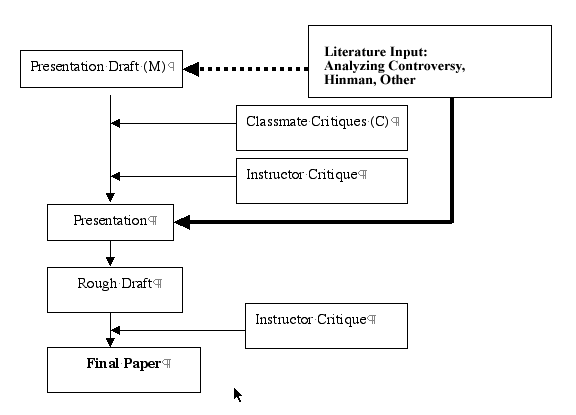
Samples of Initial Drafts and Critiques
1. Your final paper is due at the time of the next to last class.
2. It will not be accepted unless you have handed in a rough draft at least one month in advance of the last class. (Special accommodations can be made,.)
a. Students who have not presented by the time the rough draft is due, need only incorporate and reference as many of the critiques as they have received by that time.3. Your rough draft will consist of your presented paper with additions and modifications from the critiques you have received from your classmates and instructor.b. This suggests that you should get your presentation paper finished (but see 3 below) and handed out as soon as possible.
a. It will be in the form of a controversy analysis as given in Clabaugh & Rozycki, Analyzing Controversy , schematized on page 157 (also see chapter 1) and Toulmin's structure of argument.4. Your final paper will contain any changes the instructor suggests in reviewing your rough draftb. it will incorporate pertinent material from all books, Hinman, and Analyzing Controversy as well as other sources you have found.
c. If you have not written your presentation papers yet, it might be best to structure them originally along these lines.
5. Your rough draft will have the following form:
a. an abstract (one page)6. Your final paper will have the same form as your rough draft.b. an outline (one page)
c. the text
d. the references (to critique papers, Analyzing Controversy, Hinman, etc.)
e. total pages up to 10.
Diagram of the Paper Writing Process
